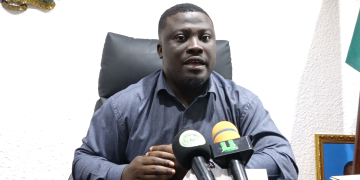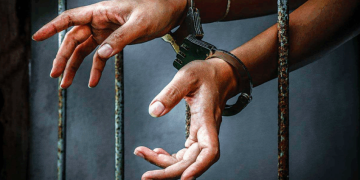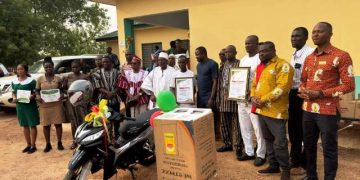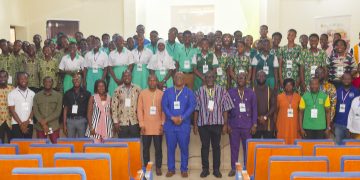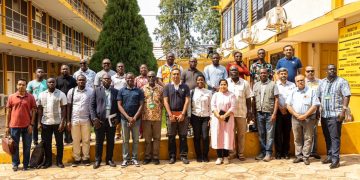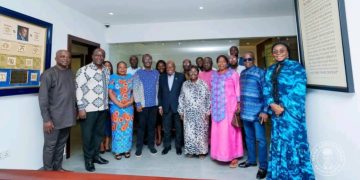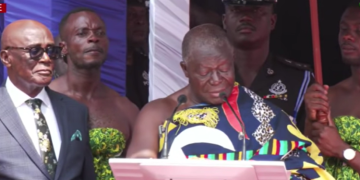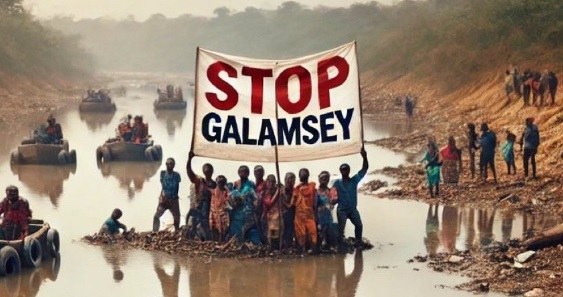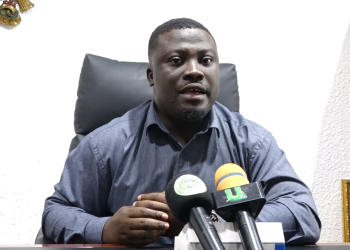Just Inclusions (JI), an advocacy group representing persons with disabilities, has raised urgent concerns over the devastating impact of illegal mining activities, commonly known as galamsey, on the country’s environment and its disproportionate effects on the disabled community.
In a statement issued to the media, JI highlighted the dangers posed by the rampant destruction of forests and water bodies, and called on the government to take immediate, decisive action to halt the illegal mining operations.
Operating under the mission banner “Persons With Disabilities Against Illegal Mining,” the group underscored the particular vulnerabilities faced by its members due to the environmental destruction caused by galamsey. They urged the government to prioritize the needs of differently-abled persons in its fight against the menace.
Multidimensional Impact on Persons with Disabilities
JI’s statement highlighted several key ways in which illegal mining threatens the lives and well-being of disabled persons across the country. One of the group’s primary concerns is the potential shutdown of water treatment plants due to the excessive pollution of major water sources. The Ghana Water Company Limited (GWCL) has warned that its plants may soon be unable to process water from rivers such as the Birim, Offin, Pra, and Tano, which have been severely affected by galamsey activities.
“Persons with disabilities, particularly those with mobility challenges, rely heavily on convenient access to basic amenities like clean water. Should these water plants close, people with disabilities will face extreme hardship,” the statement read. “For able-bodied people, walking to alternative water sources might be possible, but for someone who is blind, in a wheelchair, or using crutches, it could be dangerous or even impossible.”
Economic Hardships and Deprivation
JI also expressed concern over the economic toll that illegal mining could have on persons with disabilities. The group noted that government revenue losses from key industries such as cocoa — which has seen a drastic decline in yield due to land degradation — could lead to cuts in the meager funds allocated for disabled persons. Currently, only 3% of the District Assembly Common Fund is designated for persons with disabilities, and any further reduction would exacerbate their already precarious financial situation.
“Our livelihoods are already strained,” the group said. “If the government’s revenues continue to dwindle due to galamsey, it is our community that will suffer first.”
Health Risks and Environmental Hazards
In addition to economic and social issues, JI highlighted the environmental and health hazards that galamsey poses to the entire nation, but particularly to the disabled population. The use of toxic chemicals like mercury and arsenic in illegal mining has polluted water sources and farmland, leading to long-term health complications such as organ damage and birth defects.
“Persons with disabilities are already grappling with their own health challenges. Exposing us to further risks from contaminated food and water only worsens our plight,” JI said.
The group also cited uncovered mining pits as a serious hazard, particularly for those who are visually impaired or have mobility issues, noting that these abandoned pits are a constant threat to their safety.
Call to Action
Just Inclusions is urging the government, civil society, and other stakeholders to adopt a unified, non-partisan approach to combat illegal mining. The group emphasized that fighting galamsey requires collaboration from all sectors, including political leaders, traditional authorities, and law enforcement.
Among their key demands are:
- A national, unified strategy against illegal mining that rises above partisan politics.
- Strong leadership from President Nana Akufo-Addo, who has previously spoken out against galamsey.
- Decentralized government involvement at all levels, from district assemblies to traditional rulers, in combating illegal mining activities.
- Accountability for traditional authorities, with specific reference to those who allow illegal mining on lands under their custodianship.
- Empowering the security forces and judiciary to prosecute offenders, and revising laws like L.I. 2462, which allows mining in forest reserves.
- Utilizing advanced technology, such as drones and GPS tracking, to monitor and prevent illegal mining operations.
- Developing alternative economic opportunities for those currently dependent on illegal mining for survival.
A Future for All
Just Inclusions believes that the fight against galamsey must be fought not only for the preservation of the environment but also for the protection of vulnerable groups, including the disabled.
The group concluded with a plea to the government and the general public: “For the sake of the millions of differently-abled persons, we urge the government to match political will with decisive action to secure a future of hope for all Ghanaians.”
About Just Inclusions
Just Inclusions is a coalition of persons with disabilities advocating for diversity and inclusion in national policies. The group focuses on economic empowerment, inclusive technology and education, gender mainstreaming, climate justice, and the creation of accessible built environments.
Aligned with the United Nations Sustainable Development Goals, JI aims to ensure no one is left behind, particularly in addressing critical national issues like illegal mining.


